Quad-Cities Colleges Not Among Hundreds Nationwide to Require Covid Vaccination
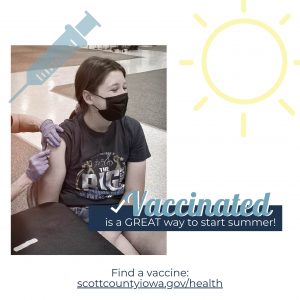
Now anyone age 12 and over can get a free Covid vaccine.
On June 14, when “The Late Show With Stephen Colbert” returned to live audiences at the Ed Sullivan Theater in New Work City, everyone attending had to prove they were fully vaccinated against Covid. Same when Bruce Springsteen returned to Broadway on June 26.
More than 500 U.S. colleges and universities also are requiring proof of Covid vaccination for students to return to campus this fall, but that number does not include any school yet in the Quad-Cities.
St. Ambrose University in Davenport is strongly recommending that all students, faculty, and staff be vaccinated for the Covid-19 virus, said Craig DeVrieze, director of communications.
“Those who have received the vaccine are encouraged to submit proof, only so the University may monitor its vaccination percentages and make appropriate decisions regarding quarantine and isolation requirements,” he said. “The University has no current plans to require Covid-19 vaccinations.”
The Chronicle of Higher Education has an online tracker that has 544 campuses across the nation that are requiring Covid vaccines for the fall. As colleges look toward the fall semester, they’re grappling with whether to require — or just strongly encourage — students to be vaccinated against Covid-19, according to the site.
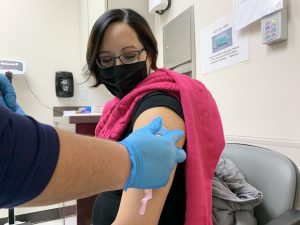
While 57 percent of the U.S. population (age 18+) has been fully vaccinated, just 39 percent of those between 18 and 24 have been.
The Chronicle has a map showing the locations of colleges that are requiring vaccines of at least some students or employees. The states are color-coded based on how each voted in the 2020 presidential election. That’s followed by a graphic showing the pace at which campuses have made their announcements, and a searchable list of those campuses.
In Illinois, the following schools are requiring vaccination: Columbia College, DePaul University, Lewis University, Dominican University, Elmhurst University, Knox College, Lake Forest College, Loyola University Chicago, Northern Illinois University, Northwestern University, Roosevelt University, School of the Art Institute of Chicago, University of Chicago, University of Illinois (Chicago, Springfield, Urbana-Champaign)
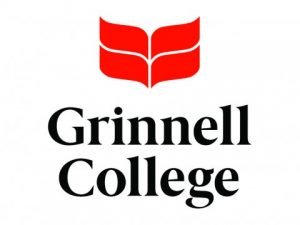
Grinnell College (between Iowa City and Des Moines) is the only Iowa college to require vaccination so far.
In Iowa, only the small, private Grinnell College (about 1,700 students) has a requirement.
On April 14, Grinnell announced: “As we continue to actively plan for a return to in-person education this fall, we write to share our plans to require COVID-19 vaccines for students enrolled at Grinnell for the 2021-22 academic year.
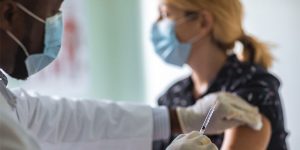
A greater portion of people in Scott County have been fully vaccinated than Rock Island County — 58% compared to 50%.
“The efficacy of vaccines, as well as expanded vaccine eligibility and availability, allows us to address the higher risk of transmission in a communal living environment and affirms this additional step to protect the health of our community.”
On the same day in April, the president of the Iowa Board of Regents said students at Iowa’s three public universities will not be required to be vaccinated against Covid to attend classes next school year.

St. Ambrose in Davenport encourages but will not require Covid vaccination this fall.
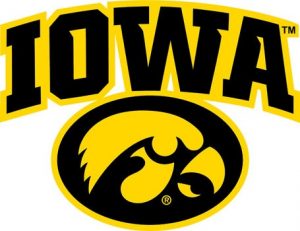
The Iowa Board of Regents decided in April that the state’s three public universities would not require Covid vaccination this fall.
Regents’ President Michael Richards said then: “I strongly believe in the effectiveness of the vaccines. We will continue to make them available.”
But vaccination will not be necessary now or in the 2021-22 school year for students or employees at the University of Iowa, Iowa State University and the University of Northern Iowa, Richards said, adding: “We continue to strongly encourage members of our campus community to get vaccinated.”
While 57 percent of the total U.S. population aged 18 and up has been fully vaccinated against Covid, that percentage is just 39 percent among those 18-24, according to the Centers for Disease Control and Prevention – compared to 54 percent for people in their 40s and 64 percent for age 50 to 64.
In Scott County, 58 percent of people 18 and older have been fully vaccinated, and half that population has been in Rock Island County.
Quad-Cities colleges address Covid

Augustana has not yet decided whether to require Covid vaccines.
Augustana College in Rock Island hasn’t made a final decision regarding vaccine requirements.
“Vaccination status is being managed on the honor system at this time,” according to the college website. “If infection rates increase considerably, spread occurs on campus, or other unforeseen circumstances occur, vaccination status may need to be verified later.
“Even those who are vaccinated should ask colleagues if they’d be more comfortable remaining masked,” the site says. “They may have children or vulnerable family members in their households who remain at risk for infection.
College officials have made no decision about possible vaccination requirements, while a final decision will be announced no later than July 9.
Those who are unvaccinated should remain masked in all public areas inside buildings on campus, the college says, adding:
- You should remain masked both inside and outside when engaged with others such as in meetings or as you walk with a colleague across campus.
- You should continue physical distancing of at least 6 feet.
- You should continue to use temperature checks stations or the Campus Clear app.

Augustana College president Steven Bahls.
In May, Augustana President Steve Bahls said in a campus briefing that just 5% of colleges and universities then had announced they will require it, and that number was growing each day.
“We expect the number of colleges requiring the vaccine will increase dramatically when a vaccine receives full approval from the FDA, which could come as early as July,” he said.
Augustana will wait for guidance from the Illinois Board of Higher Education and the Illinois Department of Public Health and announce a decision at that point.
President Bahls said many students are already vaccinated, perhaps more than 90%. And he encouraged the rest of the campus to get vaccinated.
“The more students who are vaccinated the sooner life can get back to more of a normal at Augustana,” he said. “Those not vaccinated should prepare for the possibility that public health officials require or encourage us to require vaccinations.”
He said it is already clear that unvaccinated students will not be able to participate in all activities at Augustana.
International programs this summer, as well as work with the Upper Mississippi Center in the community, will not be available to unvaccinated students. High-risk activities, such as participation in music ensembles, may require students to be vaccinated. The NCAA has not announced whether it will require athletes to be vaccinated.
Unvaccinated students will be required to have weekly surveillance testing at their expense next year.
Wes Brooks, dean of students, said the college’s surveillance testing results continue to be strong, and there are no reports from people who have tested positive outside the college’s program.
He asked that the entire campus community complete the Vaccine Tracking survey, because having this information will help college leaders plan.
The most recent tally of the survey shows 773 students have responded and 323 employees. Of those, 93% of students were fully or partially vaccinated, and 95% of employees.
“I am hopeful that we are in the last lap of what has been an incredible marathon,” Brooks said then. “We need everyone to keep taking the steps they’ve so diligently taken through the course of this academic year, so we can finish strong. Masking and physical distancing are still required. Please continue keeping social groups small.”
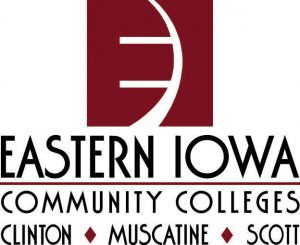
Scott Community College also encourages students, faculty and staff to be vaccinated, but isn’t requiring it.
Johnna Kerres, spokeswoman for Scott Community College, said Eastern Iowa Community Colleges are actively encouraging students, faculty and staff to get their vaccine, but it is not a requirement.
Staff who are not vaccinated are required to wear a mask on campus. Students who are not vaccinated are expected to wear a mask on campus and maintain social distancing.
Masks may be required by instructors for small group work, regardless of vaccination status, when social distancing is not possible.
“As we head into fall, we will continue to monitor community rates and exposures on campus, making adjustments to our guidelines as needed,” Kerres said. “The decision was made following CDC guidance, and reflects the current standards in our community. All three main campuses have held vaccination clinics, and we’re currently working on plans to do more clinics in August.
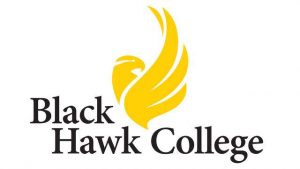
Black Hawk College is not among the 500-plus colleges and universities in the U.S. to require Covid vaccines this fall.
“We are encouraging everyone who is able to do so to get vaccinated,” she said. “We’re very fortunate we’ve been able to mitigate cases on campus over the last year with our Covid-19 protocols. EICC employees and students have worked
together to maintain safe and healthy campus environments for continued learning and work.”
Black Hawk College in Moline and Kewanee are not requiring faculty, staff or students to be vaccinated or show proof of vaccination prior to the start of fall classes. They continue to follow CDC, IDPH and the Restore Illinois Plan guidelines and post updates online at www.bhc.edu/campus-reopening-and-fall-2020-plans/.
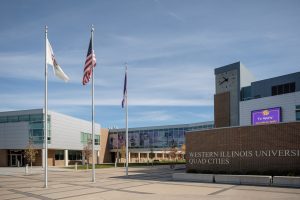
Western Illinois University has not decided whether to require vaccinations on campus.
“We are relying on employees, students and visitors to campus to complete screening through the Campus Clear app and have provided computers for use by anyone without access to phones at entry points,” BHC spokesman John Meineke said. For fall, classes will be offered in online, on-campus and hybrid formats.
Western Illinois University is still finalizing its Covid plans for the fall, spokeswoman Darcie Shinberger said recently.
Student lawsuit in Indiana
Some students at Indiana University in June filed a lawsuit against the school’s Covid vaccine requirement. In the suit, the eight students claim that they are being coerced into vaccination and that if they do not comply, they face “the threat of virtual expulsion from school.”
The lawsuit argues that with the United States’ outbreak receding, universal vaccination at the school isn’t necessary. “As the numbers continue to decline, such draconian measures as requiring all students to be vaccinated is not reasonable,” it reads.
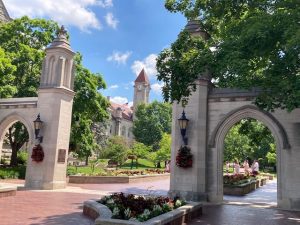
Students at Indiana University have filed a lawsuit against the Big Ten school for requiring Covid vaccination, saying the mandate is unconstitutional and a violation of their personal rights.
The mix of undergrad and graduate students, say Indiana University’s mandate is unconstitutional and violates their rights of personal autonomy. The university — which does offer exemptions for religion and medical reasons, or if you’re attending the school remotely — won’t require proof of vaccination per state law, but they do say they’re requiring the vaccine because it will support a return to safe and more normal operations this fall, according to a recent report at NPR.org.
The eight student plaintiffs are suing the school’s board of trustees. The suit also argues the right to reject medical treatment and violation of state law against Covid vaccine passports.
Although Indiana banned government-issued Covid vaccine passports, the ban does not apply to universities and colleges.
According to NPR, the legal issues vary state to state, but nationally, there’s a long history here of colleges and universities requiring vaccines – including the vaccine that protects against measles, mumps and rubella. A survey of colleges found 87.5% required it.
Mike Vernick at Akin Gump, a law firm representing colleges and universities, told NPR: “Given the cultural and political sensitivity around vaccine mandates, I don’t think that you’re going to be able to inoculate yourself from lawsuits. But, that said, I think they stand a good chance of surviving challenges.”
In April, the Chronicle of Higher Education reported that lawmakers, mostly Republicans, in almost half the U.S. states have proposed bills that would prohibit requiring vaccines of workers, saying that should be a matter of personal choice.
“Legal analysts say those state bills might face court challenges if they pass, because they conflict with employers’ responsibility to keep workplaces safe,” the Chronicle wrote. “Such laws probably wouldn’t prevent private colleges from eventually requiring vaccination, but they could pose legal conundrums for public colleges. Those usually follow local, state, and CDC health guidelines, says Scott Schneider, a partner with the law firm Husch Blackwell.”
College administrators agreed that the best case would be if voluntary-vaccination rates are so high that these problems don’t arise and colleges don’t have to go down legal rabbit holes to keep their campuses safe.
As Broadway prepares for a fall reopening, the “Hamilton” producer Jeffrey Seller said in May he will mandate that all of his show’s employees, including the cast and the backstage crew, be vaccinated against the coronavirus.
Seller was the first producer to make such a declaration publicly, and it is not clear whether any of Broadway’s many labor unions could or would challenge such an effort, according to The New York Times. “Hamilton” – which will reopen on Sept. 14 in New York – will not require patrons to be vaccinated.













Leave a Reply
You must be logged in to post a comment.